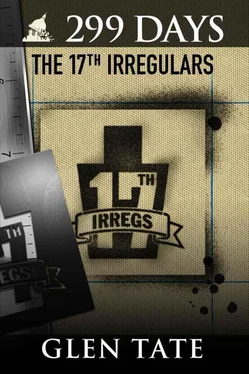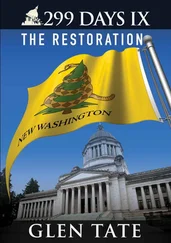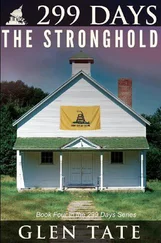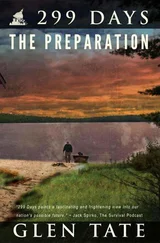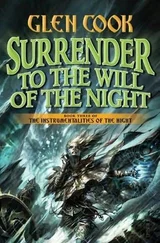“This will be a community bank,” one of the other bankers said. “It will be by us and for us. It’s local. We’ll only prosper if our customers do. It’s that simple.”
“Trust?” the first banker said. “Sure, we’re asking people to trust that we won’t take off with all the gold and silver, but people had to trust that those old FUSA dollars were worth something, which was a much bigger leap of faith. A piece of paper is ‘worth’ whatever amount was printed on it. Really? We all saw what happened when people figured out they couldn’t trust those dollars. I think we’re asking people to trust us much less than that.”
Joe nodded. He wanted to be part of this, to help people in his area by having a bank. He also wanted to make some money. He could have started stealing and running protection rackets long ago. Everyone in town knew that. He was a good man who used the incredible power he had very sparingly and only for good.
“OK,” Joe asked, “so how does the bank make any money?” He knew the answer, but asked anyway.
“Well, eventually by loaning money,” Bruce said. “But that’s a ways off.”
“What?” Joe asked. Banks made money by loaning it. How come they weren’t going to do that right away?
“We won’t loan money like the old banks,” the first banker said. “They did ‘fractional reserve banking.’ That’s where they only had to have a tiny fraction of their deposits on hand and could loan huge multiples of their deposits. So, if an old bank got a deposit of $10,000, they would loan out a million. This is why the old banks couldn’t come close to paying every depositor. Remember the long lines right before May Day when word got out that the banks would be closed in a few days? Those banks never had anything close to the amount of cash that they owed depositors. We’ll be different. We have to be or no one will deposit with us.”
“We will have the money on hand to cover the notes we issue. Period,” a third banker said. “We might loan a small percentage of our money eventually, but we’ll never get into that fractional reserve banking nonsense like they used to.”
“Joe,” Bruce said, “loaning money won’t be the main way we’ll make money. Instead, we’ll basically be a safe deposit box. We’ll charge a fee for safely keeping the deposits. I think people will gladly pay to have their valuables safely locked up instead of worrying about gangs coming to their homes or business to steal…or worse. They’ll pay quite a lot, actually. People are paying you for security contractors now. Looking at this as a business person, what good is having stuff when it might get taken? People will pay something to have their things safe.”
Bruce continued. “Then, when the rebuilding starts, there will be a huge demand for credit. There will be so many businesses starting up. People will pay fairly high interest for a loan. We’ll loan part of our assets—but only part, like maybe a quarter, max. We’ll only loan to people we know can pay us back, like a solid business starting up in town. We’ll earn interest on the loans. We’ll pay people a little interest on their deposits and we’ll keep the difference between the interest we charge on loans and the interest we pay on deposits. Plus, we’ll still make money for the safe deposit boxes.”
“But let’s be honest,” another banker said. “We’re doing this because we want to have some security and economic growth in our town. If we make any money, it won’t be for years from now.” All the bankers would deposit their own wealth into the bank and use that as seed money for the bank’s expenses. It was an investment for them.
This plan to start an honest bank made sense. Joe realized he had quite a business opportunity here. “So,” he asked, “you would pay my company from the safe deposit charges now and maybe interest later?”
“Yep,” one of them said. “Directly from the safe deposits, as in you physically keep a portion of whatever items a person gives the bank as the safe deposit fee.” They started to talk about what percentage Joe’s company would keep. That discussion lasted several minutes, and ended with Joe keeping 50% of the safe deposit fees for the first year because the bank’s major expense, at this early point, was for security. It would take many of Joe’s guys and equipment to secure the bank. It would be a fortress.
Joe was beaming inside. All of his hard work and preparations had put him in a position to essentially be a 50% partner in a bank without investing a dime, just giving his guys some work. Before the Collapse, he had worked so hard at a traditional business, only to have the government shut him down. Now, no government could shut him down, and he didn’t have to pay any taxes. He would have never thought people could do quite well after a society collapses, and that they could do it honestly, without having to rob and kill for it. But it made sense: in every human situation, some people do well and others don’t. Most of the population was doing horribly. It was inevitable that some people, the prepared and smart people, would actually prosper from the Collapse.
He extended his hand to Bruce. “Deal,” Joe said. That was how business was done now; a group of local people who knew each other, a handshake. In so many ways, the Collapse was like pressing a giant reset button to the way America originally was, and to the way the country became so prosperous before it went insane.
One of the bankers came up to Joe with three cigar boxes. “Hey, Joe, I know you like cigars. Consider them a signing bonus.”
Joe smiled. “I got about seventy guys who would love a cigar. It’s a pleasure doing business with you, ladies and gentlemen.” That’s how Joe Tantori got into the banking business.
Chapter 185
Commissioner Winters
(July 9)
Ed Winters couldn’t sleep. Again. He was sleeping in a bed in a spare conference room in the courthouse. This is weird, he kept thinking. He couldn’t get past the oddness of a bed in a conference room. Or sleeping at his office. It just wasn’t right.
He felt like he was in a jail, but he was glad to be there, given the alternative, which was getting killed “outside the wire,” the area outside the fortified courthouse. Outside the wire is where all those pathetic animals—the townspeople—lived.
Winters tossed and turned some more. It was no use. It was 3:45 a.m. and he wasn’t going to get any sleep, which was amazing because he was so tired. He got up and walked down the hall to his office. It was just so weird getting up from bed and already being in his office. It made time blur together. There was no “work day” and “home.” It was just one big, run-together blur of working.
County Commissioner Ed Winters was in his early sixties and had a full head of silver hair. He was short and thin and looked like a CEO. He was a typical politician-looking guy.
Winters was the boss of Frederickson. The undisputed boss. He liked that part. It made him smile every time he thought it because he had come out on top, just like he knew he would from the day he moved to this piss-ant town.
He arrived in the early 1970s when he was fresh out of college. He had a job in the office of the local wood products plant and rose up the ladder quickly. He was active in civic affairs until the plant closed in 1989, when the spotted owl going on the endangered species list shut down logging in western Washington. By that time, he was the assistant manager out there and “Mr. Frederickson,” serving on every board and charity. He was the Grand Marshal of the Timber Days Parade for so long that people had forgotten who else had ever done that.
With the plant closing and Winters being “Mr. Frederickson,” it was only natural that he would run for office. He ran unopposed for mayor of Frederickson in 1990.
Читать дальше
